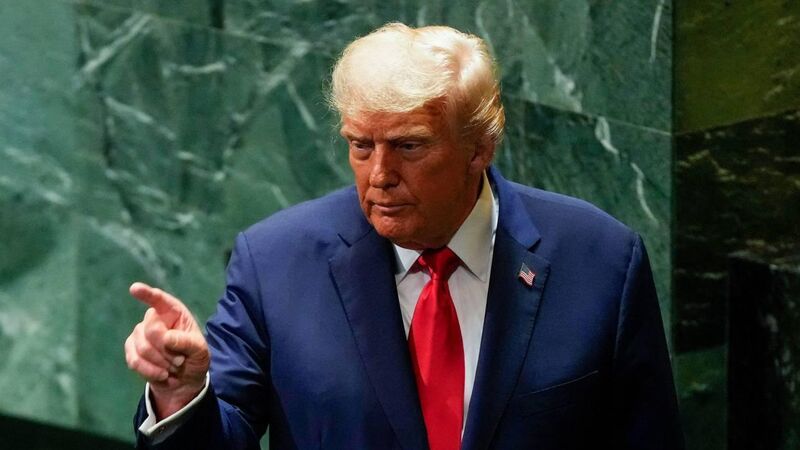Trevor Laffan: So much confidence, so little sense: what a world we live in

At least that was the case in my neck of the woods. If you showed the slightest sign of being cheeky, cocky or a bit uppity, you would be slapped down immediately and unceremoniously.
“Who do you think you are?” “Don’t you go getting ideas above you station.” “You remember where you came from and don’t go looking down your nose at anyone.” “C’mere young fella, do you think you’re God’s gift or something?”
It was important to be respectful to everyone, and even a hint you might consider yourself to be better than anyone else, could invite a clip around the ear.
Nowadays, those same adults would be hung out to dry on social media for ‘child abuse’. They would be accused of stifling creativity in the youth.
The modern way is to encourage kids to be themselves. To express themselves freely, which really means letting them run wild, but that doesn’t always create the nicest or most well-behaved kids who in time become not the nicest or most well-behaved adults.
You see them in all walks of life. In politics, in the workplace, in social settings, and it’s easy to spot them. They regard themselves as experts in pretty much everything. They’re the guys in the group who have the answer to every problem. They’re extremely confident and often arrogant when expressing opinions because, in their own mind, they can’t possibly be wrong.
And they’re growing in number.
People who consider themselves to be on top of their game, experts in their field, the best of the best and deserving of respect from their colleagues for the efficiency they bring to their workplace.
They are invaluable and they have no problem letting you know.
The only problem is that in many cases these very same people take incompetence to a new level while failing to recognise their own stupidity.
Someone described the attitude of these people perfectly in a piece online recently.
They wrote: “They confidently lecture everyone on a topic they clearly misunderstand, and despite their obvious ignorance, they speak with unwavering certainty, dismissing opposing views as uninformed or wrong, which perfectly illustrates how incompetence can mask itself as confidence.”
I’ve sat through many meetings with the aforementioned and it is impossible to put a dent in their ignorance. It’s often easier to let them off and hope it ends sooner rather than later so you can escape their clutches.
There’s nothing wrong with being confident. That’s an admirable trait as long as you can back it up, but when it reaches a stage where it becomes delusional, it’s difficult to tolerate. These people never seem to suffer from embarrassment either.
The recent hunt for nominations in the race for the Áras is a good example.
But, of course, they didn’t, and they never had a snowball’s hope in hell of getting within an inch of the Phoenix Park in the first place.
They couldn’t see that though, and it seems they didn’t have anyone close enough to tell them either.
If I had decided to put my name forward, I would have been left in no doubt within 30 seconds that I was being a complete idiot. My family would have had the first go, and very soon after, my friends would have piled on top of me. And rightly so.
But they wouldn’t need to because I have enough self-awareness to be able to reason that out for myself.
There are many who can’t, and President Donald Trump is a prime example of that.
He says whatever he wants, regardless of the facts, and seems to be completely beyond embarrassment.
No matter how ridiculous or nonsensical he sounds, he ploughs on with confidence.
Trump and people like him used to annoy me. I used to get worked up by their incompetence, their misplaced confidence, and their constant outpouring of hot air, but not anymore.
I used to get embarrassed for them, but not now, because I’ve come to realise it may not be their fault. It may be down to a brain issue, a malfunction if you like.
I have just recently discovered the Dunning-Kruger effect, which could explain everything.
Britannica describes the Dunning-Kruger effect as a cognitive bias whereby people with limited knowledge or competence in a given intellectual or social domain greatly overestimate their own knowledge or competence in that domain relative to objective criteria, or to the performance of their peers or of people in general.
Because they are unaware of their deficiencies, such people generally assume that they are not deficient.
John Cleese, the British comedian, put it in simple terms: “If you are really, really stupid, then it’s impossible for you to know you are really, really stupid.”
This is not a new phenomenon. My parents often expressed it with common sayings like “A little knowledge is a dangerous thing” and “Ignorance more frequently begets confidence than does knowledge.” (Charles Darwin).
The adults who surrounded us as children knew nothing of the Dunning-Kruger effect but they knew about respect, decency and common sense. They made sure we knew our place too.
They bred it into us… well, most of us anyway.







 App?
App?




